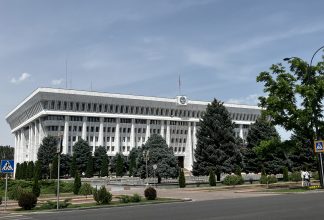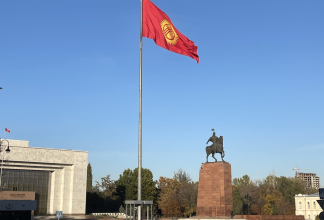Risk of Imprisonment for Promoting LGBT-rights
Kyrgyzstan has followed the Russian example by introducing a bill to criminalise the distribution of information regarding LGBT issues. The Kyrgyz proposal goes even further than the Russian law in its scope by proposing not only fines, but also possible prison sentences for anyone violating the new law.
On 26 March, the Kyrgyzstan parliament outlined a draft bill that would impose criminal sanctions with regards to the distribution of information about homosexuality and LGBT-related subjects in a manner that “creates a positive attitude towards non-traditional sexual relations”.
*The bill constitutes a serious violation to freedom of speech, assembly and association. We urge Kyrgyzstan’s officials to abandon its implementation and reaffirm their obligations made under the International Covenant on Civil and Political Rights, which guarantees the right not to be discriminated against, and the rights to freedom of assembly, association and expression,” said Joanna Kurosz, Eurasia Programme Director, Civil Rights Defenders.
The bill violates the Kyrgyz constitution and also international human rights treaties that have been ratified by Kyrgyzstan. Compared to similar “propaganda” laws in other countries of the region, the Kyrgyz bill is even more repressive because it is the first one to impose a prison sentence for violating it.
The LGBT community in Kyrgyzstan has for a long time been the target of police extortion, harassments and physical abuse. Recently the authorities issued a temporary ban on peaceful protests in the centre of the capital city, Bishkek. There have been numerous reports of harassment and death threats to human rights activists in the country.
In September 2013 the government proposed a “foreign agents” law that imposed stringent rules on NGO’s operating in Kyrgyzstan and also required the registration of all NGOs in the country that receive foreign funding and are engaged in, what is very vaguely defined as, political activity. The proposal is also very similar to the equivalent Russian law, introduced in 2012. After public protests, the Kyrgyz bill was not moved forward, but has still not been officially withdrawn.
The draft bill is a big step backwards for the reputation of the Kyrgyz government especially when consideration is given to the next annual EU-Kyrgyzstan human rights dialogue and Parliamentary Assembly of the Council of Europe (PACE) meeting, which will decide if Kyrgyzstan will be granted “partnership for democracy” status, At the same time, Kyrgyzstan claims to be “on the forefront” of human rights issues in the region, but with this new draft bill it clearly demonstrates that the government’s repression and discrimination against the LGBT community is set to continue.


